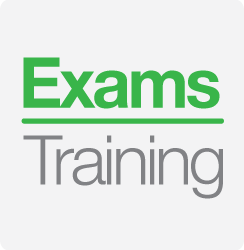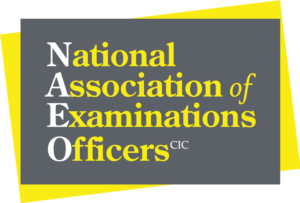This module is annually updated on an academic year basis and access to the module is included within your centre membership to The Exams Office
What the module offers
Four online training and assessment units designed to inform and measure the understanding of invigilators (and where relevant, access arrangement facilitators) of what is expected of them when supervising and supporting candidates under examination conditions.
A range of videos are included within the units to further support invigilators in understanding the JCQ regulations.
(Member centre) Exams officers should determine which unit/units is/are completed by their invigilators on an annual (academic year) basis.
The units do not address centre-specific arrangements and processes. Use the units as a means of training and assessing your invigilators and supplement with a training/briefing session to cover centre-specific arrangements and processes (and to provide your invigilators with the opportunity to ask questions about or clarify areas of JCQ regulations and requirements).
What the module covers
(Unit 1) NEW INVIGILATORS: INSTRUCTIONS FOR CONDUCTING EXAMINATIONS
Designed to meet the requirement for new invigilators to know what is expected of them by being familiarised with the content of the current JCQ publication Instructions for conducting examinations that impacts on the role of the invigilator and being made aware of the Checklist for invigilators (for written examinations) before they invigilate any examination (See CONTENT OF THE TRAINING MATERIAL)
This unit is also intended for any person newly appointed to the role of facilitating an access arrangement for a candidate under examination conditions to fully understand the invigilator role. This unit may also be useful as a refresher session for experienced invigilators.
(Unit 2) INSTRUCTIONS FOR CONDUCTING ON-SCREEN TESTS
Designed to meet the requirement for those invigilators new to conducting on-screen tests to know what is expected of them by being familiarised with the content of the JCQ publication Instructions for conducting examinations (Appendix 1 Instructions for conducting on-screen tests) in advance of invigilating on-screen tests (See CONTENT OF THE TRAINING MATERIAL)
(Unit 3) EXPERIENCED INVIGILATORS: CHANGES TO INSTRUCTIONS FOR CONDUCTING EXAMINATIONS/CENTRE-SPECIFIC ARRANGEMENTS RELATING TO THE CONDUCTING OF EXAMINATIONS
Designed to meet the requirement for the existing invigilation team (meaning experienced invigilators who are already fully trained in ICE) to be made aware of any changes within the current JCQ publication Instructions for conducting examinations that impact on the role of the invigilator
(This unit also includes a section on the centre-specific arrangements relating to the conducting of examinations that invigilators must be aware of) (See CONTENT OF THE TRAINING MATERIAL)
(Unit 4) SUPERVISING AND SUPPORTING ACCESS ARRANGEMENTS: INSTRUCTIONS FOR INVIGILATORS AND FACILITATORS
Designed to meet the requirement for new invigilators and those facilitating an access arrangement (as a practical assistant, a prompter, a reader or a scribe) for a candidate under examination conditions to understand the rules of particular access arrangements, their respective roles and what is and what is not permissible in the examination room (See CONTENT OF THE TRAINING MATERIAL)
(Note where a facilitator is supporting a candidate in an exam room on a 1:1 basis and (where permitted by the regulations) also acting as the invigilator, as well as facilitator trained the facilitator must also be invigilator trained)
Assessment
The assessments are ‘open-book’ where invigilators are permitted to refer to the regulations. Questions are selected randomly from a bank of questions.
A unit can only be certificated when a Pass (full marks) has been achieved across all sections.
As the module is updated on an academic year basis to reflect any regulation changes/updates in ICE relevant to the role, invigilators should complete the relevant unit(s) on an annual basis to confirm an up-to-date knowledge of current regulations.
Certification
Upon successful completion of a unit, invigilators will be awarded their Certificate and Assessment Details, which lists the assessment sections and associated marks, for the current academic year.
Note, completion and certification of the annually updated units of the module must take place by the end of July each year as they will be deactivated from then until they are re-activated early in the new academic year (subject to the issue of all relevant updated JCQ publications) after review and update
Which units should invigilators complete?
Ultimately how centres train their staff is a centre decision, but if centres choose to use our online assessments as part of this training, we would recommend the following:
- Units 1 and 4 are undertaken when a person is new to the role of invigilator and/or facilitator (this is because even if a facilitator never also acts as an invigilator, they need to understand the respective role)
- As these individuals become experienced, they annually undertake unit 3 (so they are made aware of any changes in the current regulations that impact on the role of the invigilator) and unit 4 to understand if there are any changes to the rules of particular arrangements
- Unit 2 is undertaken when a person is new to the role of invigilating on-screen tests
The Exams Office takes no responsibility for any outcomes in centres as a result of the information provided on our website, The Exams Office Hub or within our documentation. It is the responsibility of centres to apply this information as they deem necessary within their own centre. You should always contact/refer to the relevant awarding body for the most accurate and up-to-date information regarding their qualifications.





